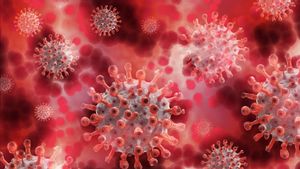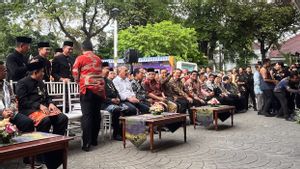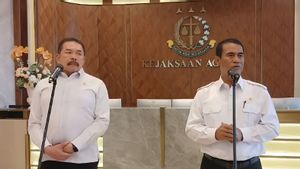JAKARTA - Argentina has detected the first case of the Omicron coronavirus variant. The person (carrier) came from South Africa on Sunday 5 December last night.
The passenger was a 38-year-old resident from the province of San Luis, western Argentina. He arrived November 30 from South Africa on a flight via the United States and has been in isolation ever since.
The Omicron variant has spooked global markets and led to new border restrictions.
Argentina joins Brazil, Mexico, and Chile in the list of Latin American countries where cases of the new variant have been detected.
On average, those infected were fully vaccinated and had given a negative PCR test before traveling and another negative antigen test upon arrival in Buenos Aires, the Argentine Ministry of Health said as quoted by Channel News Asia, Monday 6 December.
The person was tested again after learning a colleague at a work event in South Africa had tested positive for COVID-19.
"The current epidemiological goal is to contain and delay possible community transmission of the new variant of concern," the ministry said, adding it would continue to increase vaccine coverage and strengthen other preventive measures.
The patient was in close contact with four people, who are also isolated but have no symptoms and their PCR tests were negative, the ministry said. All will undergo another PCR test at the end of their isolation.
SEE ALSO:
South African authorities are preparing their hospitals to accept more patients, as the Omicron variant of the coronavirus pushes the country into the fourth wave of COVID-19, President Cyril Ramaphosa said on Monday.
The Omicron variant was first detected in southern Africa last month, sparking global concern as governments fear another spike in infections.
South Africa's daily infections jumped last week to more than 16,000 cases on Friday, from around 2,300 on Monday last week.
President Ramaphosa said in his weekly newsletter, the Omicron variant appears to dominate new cases in most of the country's nine provinces, urging more people to be vaccinated against COVID-19.
The English, Chinese, Japanese, Arabic, and French versions are automatically generated by the AI. So there may still be inaccuracies in translating, please always see Indonesian as our main language. (system supported by DigitalSiber.id)

















